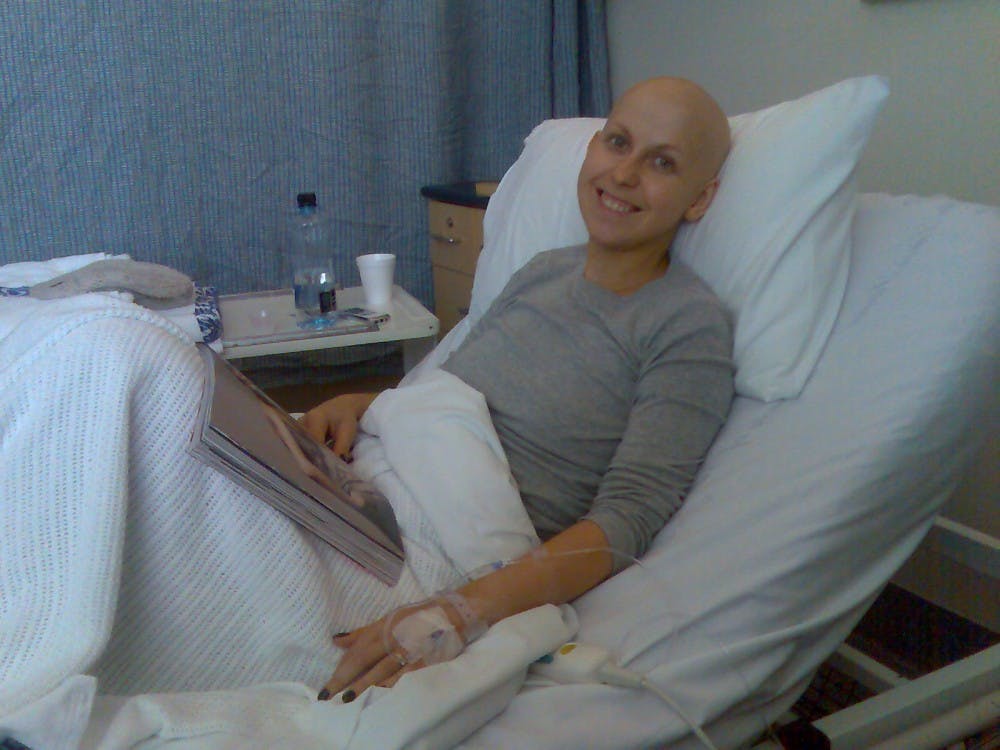Cancer research is constantly ongoing with new discoveries left and right and a potential breakthrough scattered here and there. Scientists at the Salk Institute for Biological Studies in La Jolla, San Diego, Calif., have recently discovered a process that may potentially put an end to the controversial topic on the role of autophagy in cancer.
Autophagy is Latin for “self-devouring” and describes the natural, regulated process responsible for breaking down unnecessary and dysfunctional parts of a cell. Autophagy can analogously be thought of as a cleaning service in that it rids the place — a cell, in this case — of “waste.”
In a study published in the Journal of Clinical Investigation in 2015 titled “The role for autophagy in cancer,” autophagy was shown to facilitate tumorigenesis or tumor growth. In the paper, lead author Eileen White from Rutgers Cancer Institute of New Jersey explained how autophagy is related to cancer.
“Cancers can upregulate autophagy to survive microenvironmental stress and to increase growth and aggressiveness,” White wrote. “Efforts to inhibit autophagy to improve cancer therapy have thereby attracted great interest.”
Efforts are continuously being made to determine whether autophagy is a friend or foe of cancer. Perhaps autophagy is both a friend and a foe but just at different stages of cancer.
In a study published in Cell & Bioscience in 2013 on the “Paradoxical roles of autophagy in different stages of tumorigenesis,” researchers from the Medical Sciences Research Center at Shanghai Jiao Tong University in China showed that autophagy plays the role of a protector in normal cells during the early stage of tumorigenesis but plays the role of a protector in tumor cells during the late stages of tumorigenesis.
A recent breakthrough at the Salk Institute for Biological Studies in San Diego, Calif. not only supports the claim that autophagy is a beneficial mechanism in the early stages of cancer, but the researchers were able to determine a potential reason behind the claim.
Published in Nature, Professor Jan Karlseder’s work at Salk’s Molecular and Cell Biology Laboratory revealed the tumor-suppressing nature of the autophagy pathway in early cancer. This indicates that blocking the natural autophagy process in the early stages of cancer may unintentionally promote cancer instead. In other words, autophagy is necessary to prevent cancer initiation and tumorigenesis.
Based on White’s study in 2015, among others, discovering the beneficial aspect of autophagy came as a surprise to Karlseder and his team.
“There are many checkpoints that prevent cells from dividing out of control and becoming cancerous, but we did not expect autophagy to be one of them,” Karlseder said in an interview with Salk News.
Cells are always duplicating, and every replication encounters the “end-replication problem.” Because eukaryotic chromosomes are linear, the enzyme responsible for duplicating the cell’s DNA can’t duplicate to the end of the chromosome, resulting in a chromosome that continuously shortens each round.
The end-replication problem has been solved with the use of the highly repeated DNA sequence, known as telomeres, which protect the chromosome from shortening. However, as cells continue to undergo DNA replication, the telomeres naturally begin to shorten.
When the telomeres become too short and the chromosome can no longer be efficiently protected, the cell receives a signal to permanently stop replicating itself. However, in some cases, especially in cancerous-cells, the cells fail to receive the signal and chromosomes with shortened, or no, telomeres continue to divide, entering a state known as crisis. In order to prevent the cells from becoming cancerous cells, crisis typically leads to a mass cell death.
Karlseder, alongside his postdoctoral fellow, Joe Nassour, discovered that during crisis, the cells die by autophagy. Without this programmed cell death, the cells continued to replicate endlessly, resulting in severely damaged DNA that mimicked that of cancerous cells.
Karlseder explained to Salk News that he is excited about what this means for the future.
“This work is exciting because it represents so many completely novel discoveries,” Karlseder said. “We didn’t know it was possible for cells to survive crisis; we didn’t know autophagy is involved with the cell death in crisis; we certainly didn’t know how autophagy prevents the accumulation of genetic damage. This opens up a completely new field of research we are eager to pursue.”





